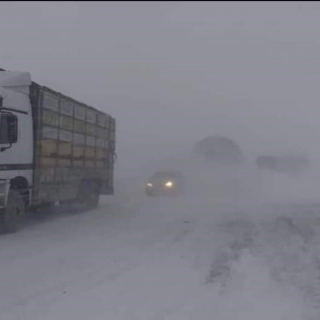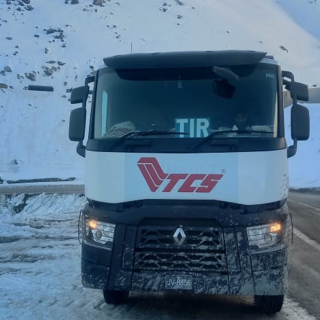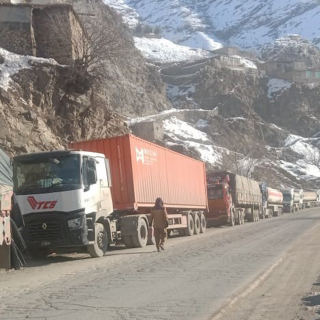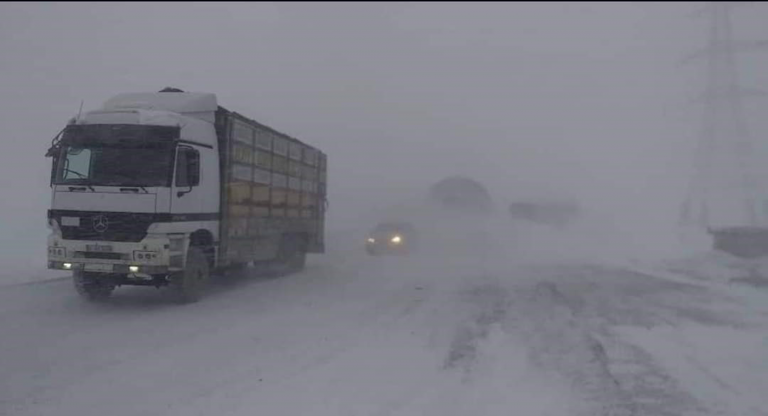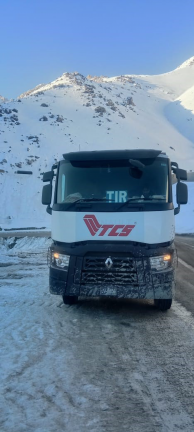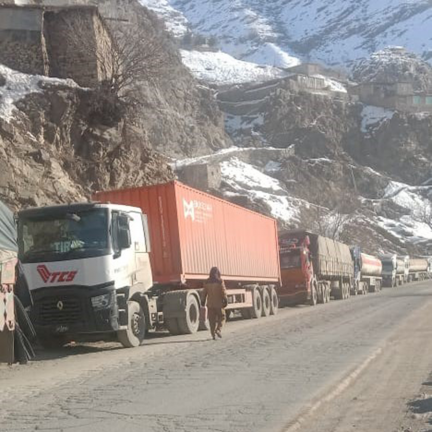New TIR corridors have opened new opportunities for road transport operators across South and Central Asia. We talked to Yonus Ali Siddiqui, Director of Regional Trade for Pakistan logistics company TCS.
Tell us about your business
TCS is one of the largest express and logistics companies in Pakistan. We started in 1983 with 12 depots and 25 orders. Now we have more than 970 express centres, a fleet of over 4,500 vehicles and we are active in 220 destinations across the world.
With international gateways in Karachi and Lahore, our regional hub in the UAE and growing partnerships in China and the world, we are focused on enabling and enhancing trade and commerce in Pakistan and beyond.
TCS was the first company in Pakistan to receive a TIR license in 2018. Since then, we have used TIR to deliver goods to Afghanistan and Uzbekistan.
Why did you choose to focus on the corridor to Afghanistan and Uzbekistan?
Uzbekistan is the largest economy in Central Asia, and it has the largest population in the region. We think that there is an immense opportunity at the moment to grow the market exponentially. This will create new export markets for Pakistani businesses.
Indeed, Uzbekistan has great geopolitical importance in the region as a gateway to Central Asia and the Middle East.
What are the main challenges you faced in opening this new market?
At first, we were intimidated by the administrative procedures involved and uncertainties about the condition of infrastructure.
Luckily, with the help of IRU and IRU member PNC-ICC, the International Chamber of Commerce in Pakistan, we managed to receive all the necessary information and support to open this route successfully.
The guarantees provided by the TIR system were central in our decision. For a company like ours, it is important to keep very high standards for door-to-door delivery. TIR has facilitated all our cross-border shipments to Afghanistan, Uzbekistan and as far as Kyrgyzstan. We could not have used these routes without a reliable system like TIR.
Tell us more about your experiences with the route via Afghanistan
The main operational challenges on this route are mainly due to poor road infrastructure in Central Afghanistan. Extreme weather and road closures are the biggest challenges, specifically in the Salang Pass.
The Salang Pass is at an altitude of 3,878 m and snow falls throughout the year. Summers are better in terms of road logistics, but winters can be difficult.
As with all new corridors, congestion at border crossing points can also lead to delays which can be reduced by using the TIR system and relevant authorities establishing express TIR “green lanes” at border crossings.
Between weather-related and administrative delays, a journey from Karachi to Tashkent takes about 10-12 days at the moment. Ideally, that journey should take eight days.
Overall, our TIR trucks can cross into Afghanistan and again into Uzbekistan seamlessly.
How is TIR specifically helping you on this route?
The primary advantage is cargo safety. Given the situation in Afghanistan, non-TIR shipments are loaded into different trucks twice before reaching Uzbekistan. This obviously increases the risk of damage, loss or theft.
On the contrary, TIR trucks operated by TCS reach their destination in perfectly sound condition and in record time. By using TIR, we have reduced the distance to drive between Pakistan and Uzbekistan, leading to time savings of up to 25-30% in some cases.
What has been the reaction from your customers?
We strive to give our customers a prime-quality experience when they choose us, and TIR has certainly helped us. Our customers are quite receptive and we are already receiving more inquiries to ship goods to Central Asia.
Volumes are expected to increase exponentially in the near future as people become aware of the economic viability of trading with Central Asia under TIR.
Also, since other trade routes in the region are limited at the moment, TIR movements out of Pakistan will benefit strongly from new corridors through to Central Asia.
What are your plans to expand TIR routes from Pakistan?
It is clear that the recent turmoil in the shipping industry has further compounded the already difficult logistics scenario for Central Asia. Both costs and lead times have gone up, and the war in Ukraine has had a massive impact on fuel prices.
For these reasons, we expect that demand for cost-effective trucking is likely to increase, and TIR routes through Pakistan have opened several options for road transport. The future of international trucking is bright in this region, and even more so with TIR.
TCS is keenly monitoring all these developments and we are planning to develop more integrated logistics solutions for maximum efficiency in global goods transport.

